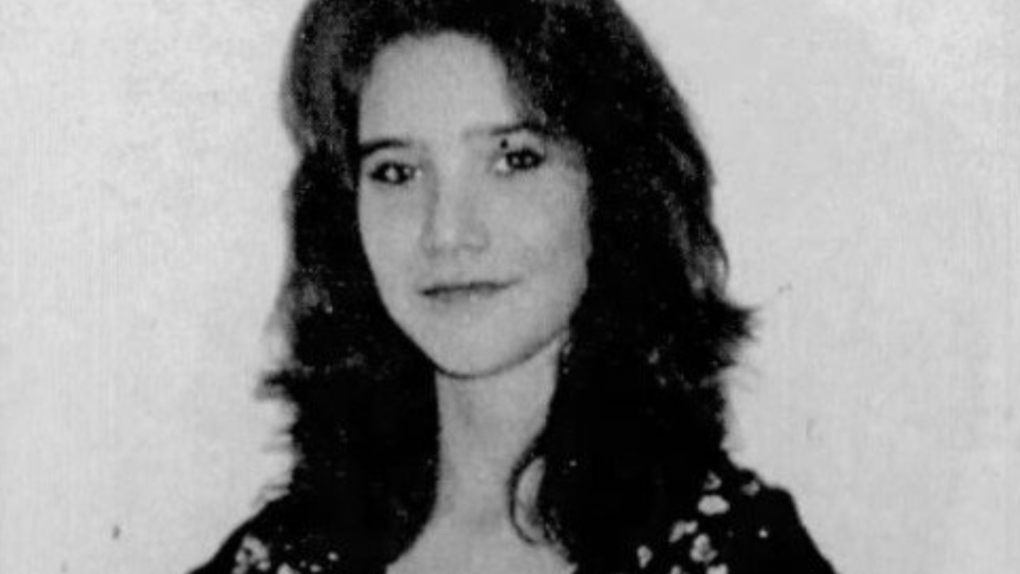Highway of Tears case: Death of B.C. woman investigated as possible victim of serial killer remains unsolved
 Roxanne Thiara is shown in an undated photo from Central Okanagan Crime Stoppers.
Roxanne Thiara is shown in an undated photo from Central Okanagan Crime Stoppers.
It's a mystery that remains unsolved nearly three decades later: What exactly happened to Roxanne Thiara?
Police say "there is no such thing as a cold case," and this week, a local division of Crime Stoppers made an attempt to bring in fresh leads Tuesday.
The young woman is one of several in British Columbia believed to have met their end on a notorious stretch of roadway dubbed the "Highway of Tears."
Police say "there is no such thing as a cold case," and this week, a local division of Crime Stoppers made an attempt to bring in fresh leads.
Thiara's remains were found in August 1994 on Highway 16, between Prince George and Prince Rupert.
The 725-kilometre section of highway has also been tied to many cases of missing and murdered Indigenous women.
Thiara was one of more than a dozen women whose deaths were examined by an RCMP task force ordered to look into the possibility that a serial killer, or more than one killer, was active in the province.
The investigation involving the women who were killed along major highways was called Project E-PANA, named for the Inuit word "Pana," describing the spirit goddess who looks after souls before they go on to heaven or are re-incarnated.
It started with the cases of nine women, and soon grew to 18, most of whom are believed to be homicide victims. Five could not be found.
The victims were all female, and were either hitchhiking or engaged in something else the RCMP deemed to be "high-risk behaviour." They were all last seen, or their remains were found, near three B.C. highways between 1969 and 2006
In addition to Highway 16, highways 97 and 5 were also included.
Police said the initial years of investigation determined that a single serial killer was not responsible for all of the 18 deaths and disappearances.
At the time of the latest update, in 2012, there were still 50 investigators and support staff working to solve the cases of the missing and murdered women.
Some remain unsolved to this day, including that of Thiara.
In an attempt to encourage tips, CrimeStoppers is reminding the public that it is an option for those who, for various reasons, don't want to speak to police or don't want to be tied to the case.
"We'll get your information to the police without revealing who you are," CSCO wrote in a Facebook post that included a photo of the missing woman.
Tips can be made to CSCO at 1-800-222-8477 or online.
The post doesn't mention a possible payout, but the non-profit's website says it pays rewards of up to $2,000 for tips that lead to charges or an arrest.
CTV News has reached out to the RCMP for more information on Thiara and her case. This article will be updated if additional information is made available.
CTVNews.ca Top Stories

Landslide closes B.C.'s Sea to Sky Highway; reception centre opened for stranded travellers
A landslide shut down the Sea to Sky Highway in both directions near Lions Bay Saturday morning, and authorities expected the road to remain closed for at least the rest of the day.
Montreal man died of aneurysm after waiting 6 hours in ER
A 39-year-old Montreal man died of an aneurysm after spending six hours in an emergency room before giving up and going home.
Canada Post union negotiator balks at labour minister's calling for a 'time-out'
This week, Labour Minister Steven MacKinnon announced a 'time-out' in the ongoing Canada Post strike. In a way, Canadian Union of Postal Workers (CUPW) negotiator Jim Gallant says he agrees with that phrasing.
'We called a Code Silver': LHSC goes into lockdown after shooting outside emergency department
The emergency department (ED) doors at LHSC Victoria Campus were being repaired Saturday morning after a person fired a gun into the glass.
ABC agrees to give US$15 million to Donald Trump's presidential library to settle defamation lawsuit
ABC News has agreed to pay US$15 million toward Donald Trump’s U.S. presidential library to settle a lawsuit over an inaccurate on-air assertion that the president-elect had been found civilly liable for rape.
YouTube singer arrested in Iran after performing an online concert while not wearing a hijab
Iranian authorities have arrested a female singer who performed a virtual concert on YouTube, a lawyer said.
British departure means uncertain future for Alberta's massive Suffield military base
A sprawling military training base more than twice the size of New York City in southeastern Alberta appears to be a shadow of its former self while its future use remains up in the air.
Enbridge pipeline spills 70,000 gallons of oil in Wisconsin
Roughly 70000 gallons (264,978 litres) of oil from a pipeline spilled into the ground in Wisconsin, officials said.
Woman accusing Jay-Z and Sean 'Diddy' Combs of sexual assault acknowledges inconsistencies
A woman accusing rappers Jay-Z and Sean “Diddy” Combs of sexually assaulting her when she was 13 has acknowledged certain inconsistencies in her story.






























